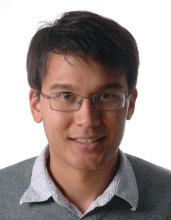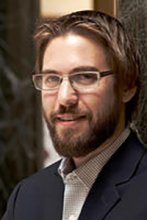Past Events
Natural Language Processing Seminar Series: Shirley Anugrah Hayati
Friday, Oct. 29, 2021, Noon
Shirley Anugrah Hayati is a Ph.D. student at the Georgia Institute of Technology.
The Minnesota Natural Language Processing (NLP) Seminar is a venue for faculty, postdocs, students, and anyone else interested in theoretical, computational, and human-centric aspects of natural language processing to exchange ideas and foster collaboration.
Contact Dongyeap Kang (dongyeap@umn.edu) for any questions or inquiries.
Robotics 8970 Colloquium: Catherine Zhao (Fall 2021)
Friday, Oct. 22, 2021, 2:30 p.m.
Hybrid event — Shepherd Drone Lab (Shepherd 164) — Enter the Zoom call
Attention in Vision-based AI Systems
Imagine that you are at a bus stop in a new city. You take a few glimpses around, parse and summarize the information you gather, and decide the next steps. Although intuitive, it implies a highly sophisticated and superior ability to select and parse information. Our research is along this line to develop and utilize machine attention for AI systems. In this talk, Professor Catherine Zhao will discuss the challenges and share the recent innovations in data, models, and applications from our research.
Zhao will first talk about attention prediction - the ability of machines to find the most relevant information. She will elaborate on our computational models and experimental methods for attention prediction and explain how they have advanced the state-of-the-art. She will then discuss new approaches that leverage attention in computer vision and language tasks, leading to better interpretability and task performance. She will also present preliminary data suggesting that this approach can help reveal and improve the black-box decision-making process of learning-based AI systems. Finally, Zhao will discuss the applications of our models and data in healthcare and will give two examples where our work leads to the discovery of neurobehavioral signature in autism patients, as well as cutting-edge brain-machine interface technology that restores the lost motor function in upper-limb amputee patients.
About Catherine Qi Zhao

Catherine Qi Zhao is an associate professor in the Department of Computer Science and Engineering at the University of Minnesota. Dr. Zhao’s research interests are in computer vision and machine learning, and their applications in healthcare. Her current research on machine attention is supported by NSF and NIH. Dr. Zhao has published more than 100 papers in peer reviewed conferences and journals. She is an associate editor at the IEEE Transactions on Neural Networks and Learning Systems and the IEEE Transactions on Multimedia, a program chair at WACV '2022, and an area chair at CVPR and other computer vision and AI venues.
Robotics 8970 Colloquium: Andrew Lamperski (Fall 2021)
Friday, Oct. 15, 2021, 2:30 p.m.
Hybrid event — Shepherd Drone Lab (Shepherd 164) — Enter the Zoom call
Non-convex learning, system identification, and stabilization for model-free reinforcement learning
In this talk, Dr. Lamperski will first examine the convergence of Langevin algorithms for machine learning and system identification problems with constraints.
Much of machine learning fits model parameters to data via optimization, typically via some variation of stochastic gradient descent. However, in many cases, such as neural network regression, the loss functions are non-convex and stochastic gradient descent can get stuck in local minima, if it even converges. Langevin methods augment standard gradient-based methods with additive noise. In the case of unconstrained problems, it is well-understood how the additive noise helps the algorithm escape undesirable minima. However, many neural network regression and probabilistic estimation problems require constraints. We describe a Langevin method for problems with non-convex losses and convex constraints. We will show how the method provably escapes local minima and converges to the global optima, albeit slowly in the non-convex case. Then, we will show how the method can be applied to problems with correlated data, as arise in identification of parameters of dynamic systems.
Secondly, Dr. Lamperski will describe the problem of model-free learning of stabilizing controllers for linear systems. In recent years, there has been a strong push for understanding the theoretical properties of reinforcement learning problems for simple benchmark optimal control. The simplest optimal control problem with continuous state and action spaces is the linear quadratic regulator. All previous model-free approaches to this problem required knowledge of a stabilizing controller. However, computing this stabilizing controller is typically the most important part of the design process. We will describe an algorithm based on Q-learning that can find a stabilizing controller and then optimize it. It can be applied online to a single trajectory or offline on a fixed data-set.
About Dr. Andrew Lamperski

Dr. Andrew Lamperski received the B.S. in Biomedical Engineering and Mathematics in 2004 from Johns Hopkins University and a Ph.D. in Control and Dynamical Systems in 2011 from the California Institute of Technology.
He held postdoctoral positions in ontrol and dynamical systems at the California Institute of Technology from 2011 - 2012 and in mechanical engineering at The Johns Hopkins University in 2012. From 2012 - 2014, Lamperski did postdoctoral work in the Department of Engineering, University of Cambridge, on a scholarship from the Whitaker International Program. In 2014, he joined the Department of Electrical and Computer Engineering, University of Minnesota as an Assistant Professor.
His research interests include optimal control and machine learning, with applications to neuroscience and robotics.
Natural Language Processing Seminar Series: Philippe Laban
Friday, Oct. 15, 2021, Noon
Philippe Laban is an research scientist at Salesforce Research.
The Minnesota Natural Language Processing (NLP) Seminar is a venue for faculty, postdocs, students, and anyone else interested in theoretical, computational, and human-centric aspects of natural language processing to exchange ideas and foster collaboration.
Contact Dongyeap Kang (dongyeap@umn.edu) for any questions or inquiries.
Robotics 8970 Colloquium: Professor Brad Holschuh (Fall 2021)
Soft Robotics using Shape Memory Materials for Wearable Technology Applications
In this talk, Dr. Brad Holschuh will discuss recent advancements, opportunities, and challenges associated with wearable soft robotic systems. In particular, we will focus on the use of shape-memory materials as soft robotic actuators for on-body robotic applications, and discuss actuator strategies, garment integration architectures, and potential use cases, featuring ongoing work in the Wearable Technology Laboratory (WTL).

About Professor Brad Holschuh
Dr. Brad Holschuh is an Associate Professor in the Department of Design, Housing and Apparel (DHA) in the College of Design at the University of Minnesota. Dr. Holschuh Co-Directs the UMN Wearable Technology Laboratory (WTL), is Director of Graduate Studies (DGS) of the Human Factors and Ergonomics (HFE) graduate program, and is an affiliate faculty in the MnDRIVE Initiative and the Minnesota Robotics Institute (MnRI). His work focuses on the use of soft-robotic technologies for wearable robotics applications.
Robotics 8970 Colloquium: Hyun Soo Park (Fall 2021)
Friday, Oct. 1, 2021, 2:30 p.m.
Virtual Event — Enter the Zoom call
Neural Human Geometry: Reconstructing Humans from a Single Image
This will be a prerecorded talk, available on the colloquium canvas page. Students are encouraged to watch the pre-recorded talk during this time. Dr. Park will be available for a Q&A session, starting at 3:20PM CDT.
You can view Dr. Park's original MnRI Seminar video here and watch the recorded Q&A session here.
Natural Language Processing Seminar Series: Mina Lee
Friday, Oct. 1, 2021, Noon
Mina Lee is a Ph.D. student at Stanford University.
The Minnesota Natural Language Processing (NLP) Seminar is a venue for faculty, postdocs, students, and anyone else interested in theoretical, computational, and human-centric aspects of natural language processing to exchange ideas and foster collaboration.
Contact Dongyeap Kang (dongyeap@umn.edu) for any questions or inquiries.
Robotics 8970 Colloquium: Nick Fragale (Fall 2021)
Friday, Sept. 24, 2021, 2:30 p.m.
Hybrid event — Shepherd Drone Lab (Shepherd 164) — Enter the Zoom call
Rover Robotics and ROS 2
Nicholas Fragale is the founder and CEO of Rover Robotics, which was founded in 2018 and based out of Wayzata, Minnesota. The company sells rugged, modular, ROS-enable ground robots. Nick graduated from the University of Minnesota in 2014 and went on to get his Master's in Robotics from Cornell University. He is now a member of the ROS 2 technical steering committee which is redefining what you can do with open source code.
You can learn more on Rover Robotics' website.
Robotics 8970 Colloquium: Dr. Joshua Stopek (Fall 2021)
Friday, Sept. 17, 2021, 2:30 p.m.
Hybrid event — Shepherd Drone Lab (Shepherd 164) — Enter the Zoom call
Histotripsy, a novel non-invasive platform and therapy
Histotripsy uses very high amplitude and short pulses (microseconds) of focused ultrasound to induce and control acoustic cavitation in the form of a histotripsy “bubble cloud”. The negative pressure, which can exceed -25MPa in the focal zone, allows the rapid formation and collapse of nano and microbubbles (within the bubble cloud), derived from endogenous gases naturally present in the targeted tissue. As the bubbles within the cloud form and collapse in microseconds, creating mechanical forces strong enough to destroy tissue at cellular and sub-cellular levels, and without the need for ionizing or thermal energy. An image-guided robotic platform is used to deliver the therapy. HistoSonics is currently focused on developing the broad platform capability to non-invasively treat tumors across the body, initially focused on significant unmet needs in abdominal and liver tumors.
The company is also researching and developing immuno-oncology enabling therapies, which may further benefit from the tissue lysate/effect created by histotripsy treatments, potentially offering promise to turn cold tumors hot and systemic responses to local therapy.
About Dr. Joshua Stopek
Dr. Stopek has more than 20 years of R&D leadership experience, including a strong background in developing image-guided technologies, new therapy platforms and combination devices to market. He currently is Vice President of R&D for HistoSonics. He formerly led R&D in various business areas at Medtronic, Covidien and US Surgical. Prior to that, he was the co-founder and VP of a startup medical device company, VMSI, working on new minimally invasive and tissue regeneration therapies. Dr. Stopek has over 200+ issued and pending patents. He received his BS, MS and PhD in Materials Science and Engineering from the University of Florida, where he also completed a fellowship in Neurosurgery and Neuroscience.
Natural Language Processing Seminar Series: Yohan Jo
Friday, Sept. 17, 2021, Noon
Johan Jo is an applied scientist at Amazon, working with Alexa AI.
The Minnesota Natural Language Processing (NLP) Seminar is a venue for faculty, postdocs, students, and anyone else interested in theoretical, computational, and human-centric aspects of natural language processing to exchange ideas and foster collaboration.
Contact Dongyeap Kang (dongyeap@umn.edu) for any questions or inquiries.